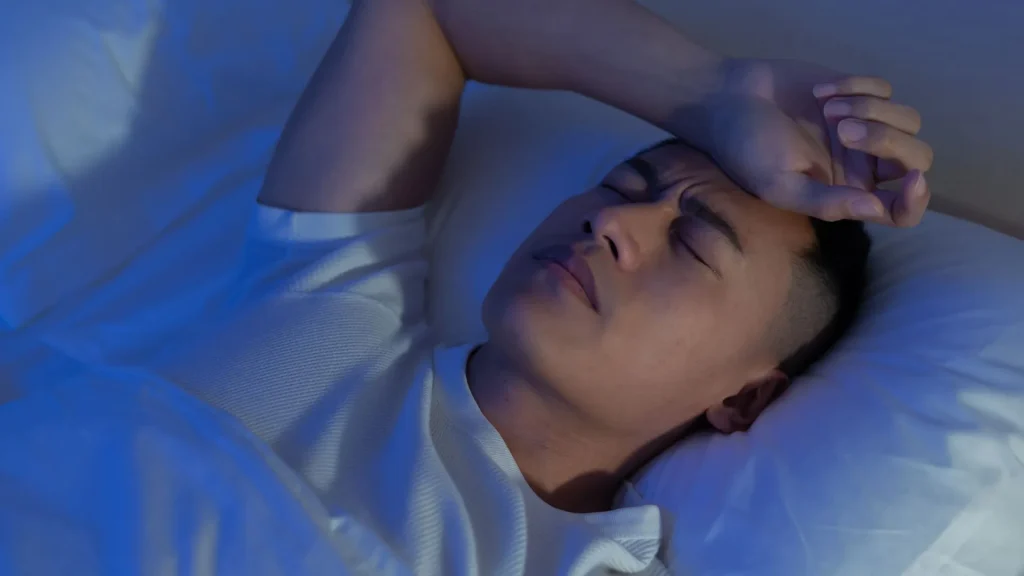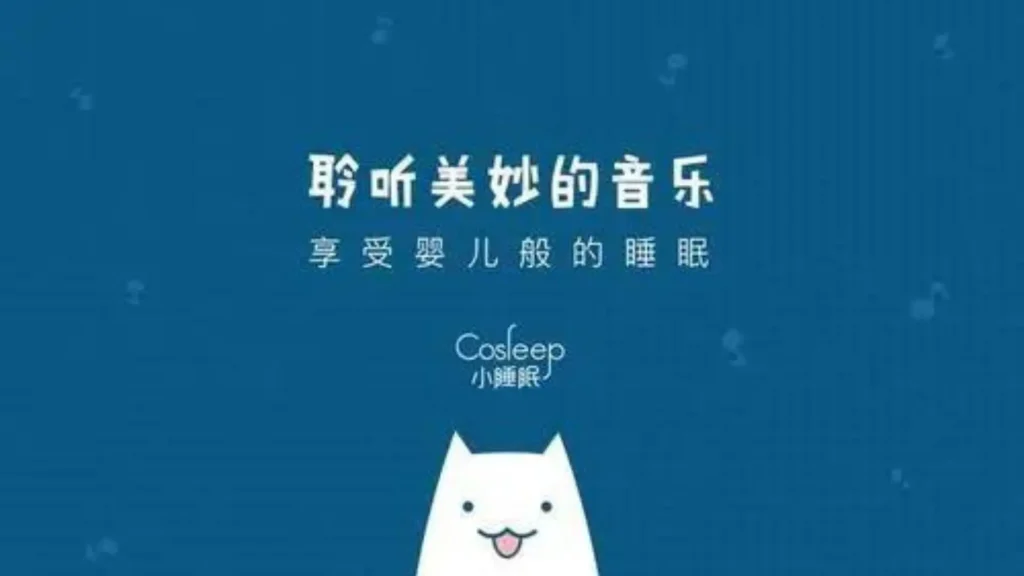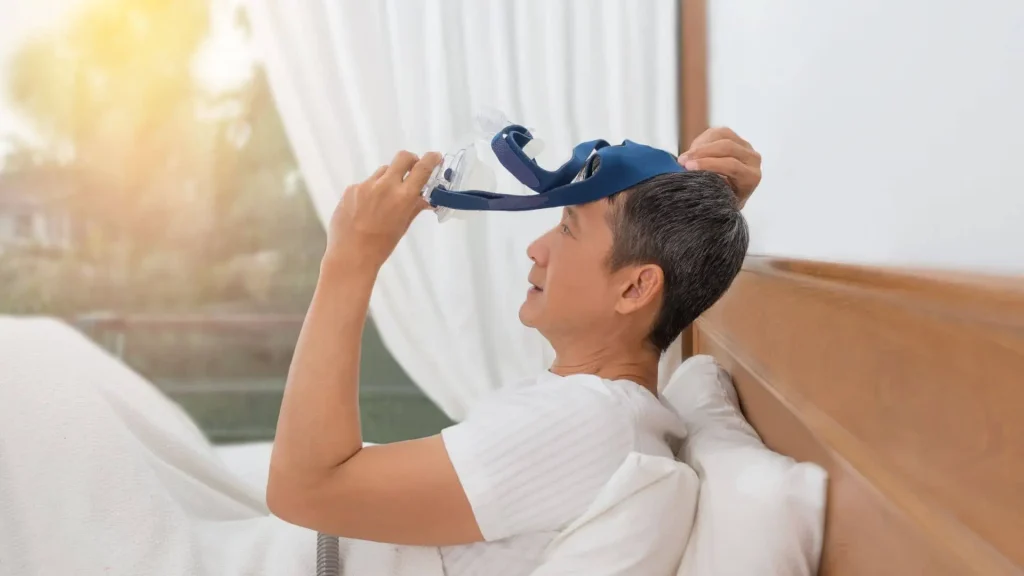Sleep disorders are a growing global concern, affecting millions of people around the world. In China 300 million individuals suffer from sleep deprivation. This number is leading to increased demand for sleeping aids in the market. The China Sleeping Aid Market is booming with a worth of 359.9 billion RMB sleep economy in 2019 and a CAGR of 11.2%.
From prescription medications to traditional Chinese medicine and sleep technology, there are various types of sleeping aids available in the market for Chinese consumers.
Need a cost effective TP (Tmall Partner) to sell in China?
We are an Official Tmall Partner e-commerce Agency. Our Services: E-Commerce, Search Engine Optimization, Advertising, Weibo, WeChat, WeChat Store & PR.
In this blog post, we will explore the different aspects of the China Sleeping Aid Market and emerging trends that could shape its future growth potential. Keep reading to learn more!
Global Context Of Sleep Disorders And The Increasing Need For Sleep Aid Products
Millions of people worldwide suffer from disrupted sleep quality. Lack of sleep is becoming more common due to:
- modern lifestyles
- demanding work schedules
- increased electronic device use.
Insufficient sleep can cause obesity, cardiovascular diseases, and impaired cognitive function. So, there’s an increasing demand for effective sleeping aids that help reduce sleep disorders.

There are many options available in the market:
- prescription medications
- over-the-counter sleep aid supplements
- sleep aid apps
- smart mattresses
- wearable devices that track sleep metrics.
During the COVID-19 pandemic, remote work blurred the lines between workspace and bedroom. This lead to increased complaints of fatigue. Marketing managers must identify emerging needs and opportunities to improve sleep quality.
The ultimate goal is to help individuals achieve better quality, healthier, and happier lives by utilizing both traditional and modern approaches.
Overview Of The China Sleeping Aid Market
Market Size And Growth Trends
The China Sleeping Aid Market has grown due to the rising demand for effective and healthy sleep solutions. Sales of sleep aid supplements alone reached 11.21 billion RMB sleep economy in 2019, driving a 360 billion RMB industry. Factors contributing to this growth:
- increased stress and anxiety levels
- an aging demographic
- growing awareness of healthy sleeping habits.
The market offers a wide range of products catering to different age groups and preferences. The Asia-Pacific region consumed $9.3 billion worth of sleeping aids in 2015, with a projected CAGR of 6.6% during 2016-2022, indicating room for further development. Innovative sleep technologies and melatonin-based supplements and TCM herbal concoctions are gaining popularity.
Global spending on sleeping aids could surpass US$120 billion by 2030. So marketing managers need to track trends in China’s growing Sleep Aid Market. To stay ahead in this dynamic business environment, one must remain vigilant.

Market Segmentation: Region, Age Group, And Product Type
The segmentation of the China Sleeping Aid Market is based on region, age group, and product type. Targeting different income-level groups is crucial due to China’s diversified market. Age demographics also play a pivotal role. Different age groups have specific sleep requirements and sleeping patterns. Product differentiation is another essential factor that determines consumer behavior in this market.
Brands can use market segmentation to identify new growth opportunities. Meanwhile, they need to meet consumer expectations for personalized solutions that cater to their unique needs. This can lead to the development of effective marketing strategies. This will target specific audiences and increase brand loyalty.
Prevalent Sleep Problems In China
Sleep disturbances are widespread in China. Insomnia is the most common sleep disorder globally. It impacts 38% of Chinese people who experience frequent insomnia. Stress and depression in urban areas have caused an increase in sleep disturbances, leading to continuous light sleep. This includes Sleep Apnea Syndrome (SAS), which could affect over 90 million patients by 2025.
Restless Leg Syndrome (RLS) and Obstructive Sleep Apnea (OSA) are other prevalent disorders that affect individuals’ quality of life. RLS causes discomforting sensations during rest or lulls before bedtime. OSA causes disrupted breathing while asleep, leading to daytime fatigue and cognitive impairment. All this affects work efficiency. Medication or continuous positive airway pressure therapy has proven effective.
To improve sleep quality, adopting lifestyle changes is crucial:
- avoiding stimulants like caffeine before bed
- maintaining a regular bedtime schedule
- performing light exercises daily
- maintaining an ideal body weight range through diet control
- consistent exercise to promote overall well-being.

Sleep Clinics And Sleep Medicine In China
China’s sleep clinics have grown to provide specialized care for sleep problems. They are doing diagnosis, treatment, and follow-up care. Both Western-style sleep medicine and traditional Chinese medical practices are becoming more accepted. More people seek help for their sleeping problems. Growing awareness of the health benefits of quality sleep is driving demand for sleep clinics. The 2020 China Sleep Index Report revealed that obstructive sleep apnea alone affects around 11% of adults in China.
Factors Driving Market Growth
- Increasing incidence of sleep disorders
- Rising demand for healthcare and wellness products
- Aging population in Asia-Pacific
- A growing interest in non-pharmaceutical solutions such as sleep technology and supplements
- Companies specializing in sleep aid products have an advantage in revenue generation and market growth.
Types Of Sleeping Aids In The Chinese Market
Prescription Medications
Prescription medications are commonly used in the Chinese sleeping aid market. They treat sleep disorders such as insomnia and anxiety. Benzodiazepines and hypnotics like Z-drugs are frequently prescribed medications for falling asleep easier. But, these medications have potential risks such as dependence and withdrawal symptoms. The use of opioids for sleep is also prevalent, despite the numerous risks associated with their consumption.

It’s crucial to stay updated on safety issues and be aware of counterfeit products. Traditional Chinese medicine (TCM) is also a popular alternative or complementary treatment for sleep disorders. TCM emphasizes natural remedies, including herbs. Gan Mai Da Zao decoction (GMDZD), which may offer unique holistic perspectives supporting well-being.
Knowing the pros and cons of prescription drugs and traditional remedies is crucial for marketing sleep aids to different customer segments in China.
Over-The-Counter Supplements
Chinese people seek better sleep quality with over-the-counter supplements. These sleep aid products target sleep-related issues like insomnia and anxiety. They use natural ingredients like valerian root, chamomile, lavender, and passionflower. They help people to fall asleep much easier and have some deep sleep.
Melatonin is a rising star among sleep aid supplements. It is available over the counter in China but requires a prescription in other countries.
With more research on its effects on sleep problems, melatonin is expected to continue its upward trend.
Sleep Technology
Sleep techs, like smart mattresses and tracking devices, are popular in China. They improve sleep quality. Xiaomi has a Mi Band that tracks deep and REM sleep stages. Lief’s VR therapy headset provides a relaxing environment for meditation. TBT-I is a developing area of sleep tech. It combines cognitive-behavioral treatment methods with digital health tools for personalized feedback-driven improvements. There are other tech options like sleep aid lamps, smart pillows, massage chairs, diffusers with essential oil, etc. This not only provides personalized solutions but also encourages better research opportunities for companies involved in these technologies.
Sleep Aid Apps
Sleep aid apps are becoming increasingly popular in China, as more and more people look for ways to improve their healthy sleep. These apps offer a variety of features, such as white noise, meditations, and sleep tracking, to help users fall asleep and stay asleep. Mainly young people use them who have continuous light sleep.
Some of the most popular sleep aid apps in China include:
小睡眠 (CoSleep): This app offers a variety of features, such as white noise, meditations, and sleep analysis. It also has a social component, where users can connect with other people who are trying to improve their sleep.

潮汐 (Tide): This app focuses on helping users relax and fall asleep. It offers a variety of calming sounds, such as nature sounds and music.
蜗牛睡眠 (Snail Sleep): This app is designed to help users track their sleep and identify any patterns that might be affecting their quality of sleep. It also offers a variety of features to help users fall asleep, such as white noise and meditation.
Traditional Chinese Medicine (TCM) And Sleep Quality
TCM emphasizes the balance of energy or Qi for good sleep. Imbalances can lead to sleep problems. TCM uses acupuncture and herbal remedies to treat them. Chinese herbs like chamomile tea, jujube seeds, magnolia bark, and passionflower extract are common natural remedies.
They reduce anxiety and promote relaxation. Recent research shows that Chinese herbal medicines can prevent chronic diseases. For example, cardiovascular disease, and diabetes-related neuropathy, can affect normal sleep patterns.

Sleep Therapy And Counseling
Sleep therapy and counseling are emerging as solutions for sleep problems in China. Cognitive behavioral therapy (CBT) is a popular form of psychological counseling recommended for insomnia. It involves identifying negative thoughts and beliefs about sleep and replacing them with positive ones.
Relaxation techniques are also used. Other forms of psychological counseling may be beneficial for anxiety or stress-related sleeping issues. Sleep therapists can address underlying mental health concerns. These therapies provide a holistic approach. Access to these services has become more convenient with telemedicine and online sales channels. Personalized solutions allow consumers to tailor their experience.
Key Players And Challenges In The China Sleeping Aid Market
The China Sleeping Aid Market has many key players, including local and international brands. It faces challenges such as safety concerns, quality control issues, regulatory hurdles, etc.
Top Brands, Local Companies, And International Players
Companies face challenges competing with top brands, local companies, and international players. Pfizer and Sanofi dominate prescription medication. Domestic firms such as Harbin Medisan and Shanghai No. 1 Pharmacy lead in over-the-counter sleep aid supplements.
Companies like Xiaomi are popular for innovative sleep tech solutions. Success requires understanding TCM approaches and natural ingredients like jujubes and goji berries. Adapting marketing strategies to these nuances can help companies succeed in this diverse and competitive market.
Market Entry Barriers
The China sleeping aid market is challenging to enter due to the:
- government regulations
- cultural differences
- quality control issues
- competition.
Foreign companies may find it complicated and time-consuming to navigate government regulations. Cultural differences may need businesses to adapt their advertising strategies and product offerings to appeal to Chinese consumers.
Quality control is a major concern in the market. Many consumers are wary of counterfeit products. Businesses must address quality issues with goods produced in China to succeed in this saturated market.

Safety Concerns, Regulatory Issues, And Quality Control
The China sleeping aid market faces challenges in the:
- safety concerns
- regulatory issues
- quality control.
Following proper manufacturing standards and quality control procedures is necessary. It’s important because of the safety of consumers and maintaining public health. It is also crucial to monitor any negative reactions to sleeping aid products through pharmacovigilance. Despite challenges, there are ongoing efforts to improve it through stricter regulation and enforcement. Prioritizing consumer safety over profits can help build trust in the market.
Counterfeit Products And Quality Control Measures
Counterfeit products are a major concern for brands in the China Sleeping Aid market. Quality control measures are vital to combating counterfeit sleeping aid products.
Supply chain management systems, product testing procedures, and authentication mechanisms can help prevent counterfeit products.
Consumer awareness and education on identifying counterfeit products are important. Customs enforcement measures can help prevent gray market goods or parallel imports. Quality control measures play a crucial role in maintaining consumer trust. Investing in anti-counterfeiting measures will go a long way toward building a thriving industry.

Cultural Attitudes Towards Sleep And Sleep Aids
These play a significant role in China’s sleeping aid consumption patterns. TCM has been the primary means of managing sleeping disorders historically. However, there is an increasing acceptance of Western-style medication among younger generations. Despite this shift, many people still prefer natural remedies over pharmaceuticals.
Cognitive-behavioral therapy for insomnia has gained popularity in recent years. Stress-related issues are also on the rise in major cities like Beijing and Shanghai. Long working hours result in poor sleep hygiene among employees.
Future Outlook And Emerging Trends In The China Sleeping Aid Market
The China Sleeping Aid Market has seen a lot of innovations and technological advancements in recent years. Sleep tech innovations, such as EEG-based aids, wearables for tracking circadian rhythm, and blue light-blocking technology, have transformed the market.
For example, Sleepace’s smart mattresses are equipped with sensors for vital sign monitoring and provide personalized recommendations through their sleep aid app. Innovation is critical for companies to remain competitive and meet the growing demand for personalized sleep solutions.
The COVID-19 pandemic has exacerbated sleep deprivation and affected the sleeping aid market, particularly among the younger generation. As a result, there has been an increase in demand for prescription medication, sleep aid supplements, sleep technology products, and therapy. Online sales channels have catered to this growing market. Marketers must understand emerging trends to capitalize on changing consumer preferences for wellness services.

The China Sleeping Aid Market is moving towards personalized solutions and e-commerce platforms, creating opportunities for companies to offer customized sleep solutions. Customers use sleep tech devices and AI technology to seek wellness products, presenting a chance for businesses to provide high-quality, personalized products through online channels. Collaborations are key to accessing the China Sleeping Aid Market.
ResMed, for example, worked with local partners to develop a cloud-based sleep monitoring system. Market integration is also important by integrating online sales channels. Using SEO techniques is crucial to driving traffic, which can lead to increased sales opportunities. Strategic partnerships and collaborations are critical to success in the China Market. This means helping companies leverage their strengths while addressing regulatory changes.
Sustainability is also crucial for companies to meet growing consumer demand in China. Companies must focus on exploring recycled materials, reducing waste, and partnering with sustainable organizations. Combining sustainability with product effectiveness can help build stronger relationships with customers and contribute to a better future.
Conclusion
The China Sleeping Aid Market is a thriving industry that offers various solutions for sleep problems. Online sales channels and sleep-tracking technology are promising areas for innovation. Increasing demand from sleepless individuals seeking effective sleep aid products and services is fueling the market’s growth potential. With leading brands, there are exciting opportunities for companies to make an impact in this emerging market.







